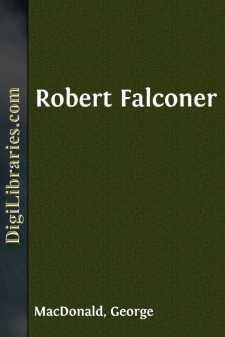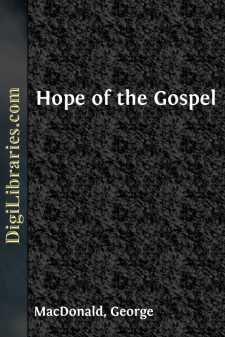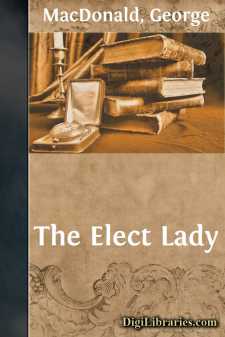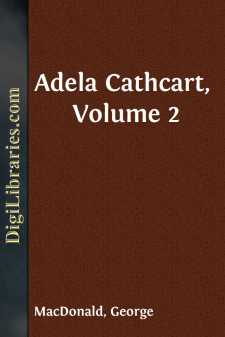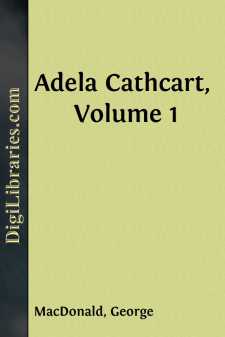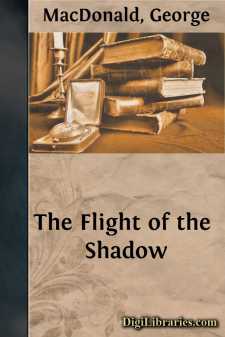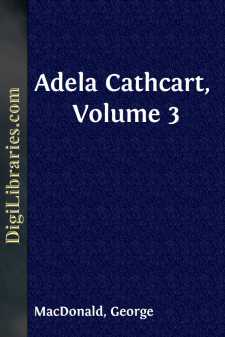Categories
- Antiques & Collectibles 13
- Architecture 36
- Art 48
- Bibles 22
- Biography & Autobiography 813
- Body, Mind & Spirit 142
- Business & Economics 28
- Children's Books 17
- Children's Fiction 14
- Computers 4
- Cooking 94
- Crafts & Hobbies 4
- Drama 346
- Education 46
- Family & Relationships 57
- Fiction 11829
- Games 19
- Gardening 17
- Health & Fitness 34
- History 1377
- House & Home 1
- Humor 147
- Juvenile Fiction 1873
- Juvenile Nonfiction 202
- Language Arts & Disciplines 88
- Law 16
- Literary Collections 686
- Literary Criticism 179
- Mathematics 13
- Medical 41
- Music 40
- Nature 179
- Non-Classifiable 1768
- Performing Arts 7
- Periodicals 1453
- Philosophy 64
- Photography 2
- Poetry 896
- Political Science 203
- Psychology 42
- Reference 154
- Religion 513
- Science 126
- Self-Help 84
- Social Science 81
- Sports & Recreation 34
- Study Aids 3
- Technology & Engineering 59
- Transportation 23
- Travel 463
- True Crime 29
Robert Falconer
by: George MacDonald
Description:
Excerpt
CHAPTER I. A RECOLLECTION.
Robert Falconer, school-boy, aged fourteen, thought he had never seen his father; that is, thought he had no recollection of having ever seen him. But the moment when my story begins, he had begun to doubt whether his belief in the matter was correct. And, as he went on thinking, he became more and more assured that he had seen his father somewhere about six years before, as near as a thoughtful boy of his age could judge of the lapse of a period that would form half of that portion of his existence which was bound into one by the reticulations of memory.
For there dawned upon his mind the vision of one Sunday afternoon. Betty had gone to church, and he was alone with his grandmother, reading The Pilgrim's Progress to her, when, just as Christian knocked at the wicket-gate, a tap came to the street door, and he went to open it. There he saw a tall, somewhat haggard-looking man, in a shabby black coat (the vision gradually dawned upon him till it reached the minuteness of all these particulars), his hat pulled down on to his projecting eyebrows, and his shoes very dusty, as with a long journey on foot—it was a hot Sunday, he remembered that—who looked at him very strangely, and without a word pushed him aside, and went straight into his grandmother's parlour, shutting the door behind him. He followed, not doubting that the man must have a right to go there, but questioning very much his right to shut him out. When he reached the door, however, he found it bolted; and outside he had to stay all alone, in the desolate remainder of the house, till Betty came home from church.
He could even recall, as he thought about it, how drearily the afternoon had passed. First he had opened the street door, and stood in it. There was nothing alive to be seen, except a sparrow picking up crumbs, and he would not stop till he was tired of him. The Royal Oak, down the street to the right, had not even a horseless gig or cart standing before it; and King Charles, grinning awfully in its branches on the signboard, was invisible from the distance at which he stood. In at the other end of the empty street, looked the distant uplands, whose waving corn and grass were likewise invisible, and beyond them rose one blue truncated peak in the distance, all of them wearily at rest this weary Sabbath day. However, there was one thing than which this was better, and that was being at church, which, to this boy at least, was the very fifth essence of dreariness.
He closed the door and went into the kitchen. That was nearly as bad. The kettle was on the fire, to be sure, in anticipation of tea; but the coals under it were black on the top, and it made only faint efforts, after immeasurable intervals of silence, to break into a song, giving a hum like that of a bee a mile off, and then relapsing into hopeless inactivity. Having just had his dinner, he was not hungry enough to find any resource in the drawer where the oatcakes lay, and, unfortunately, the old wooden clock in the corner was going, else there would have been some amusement in trying to torment it into demonstrations of life, as he had often done in less desperate circumstances than the present....


